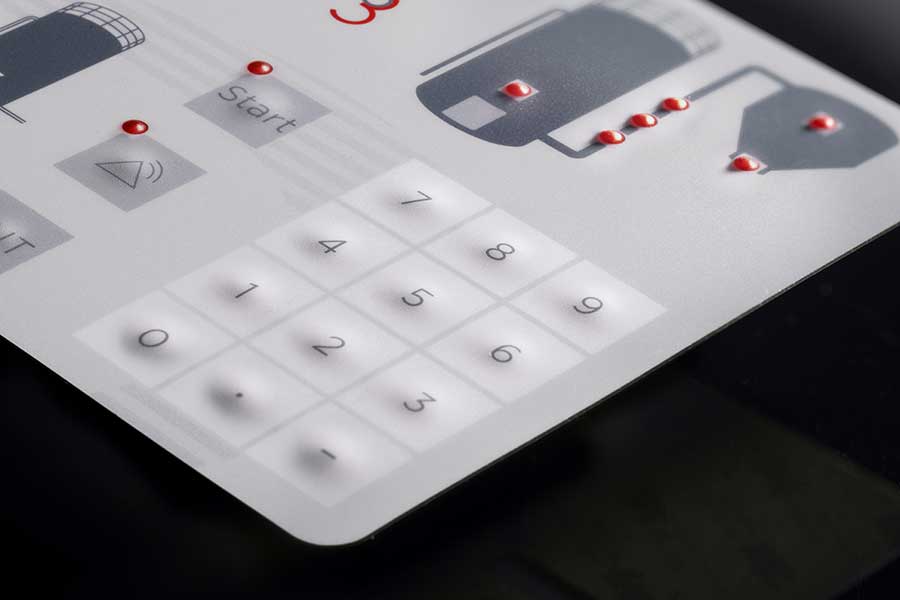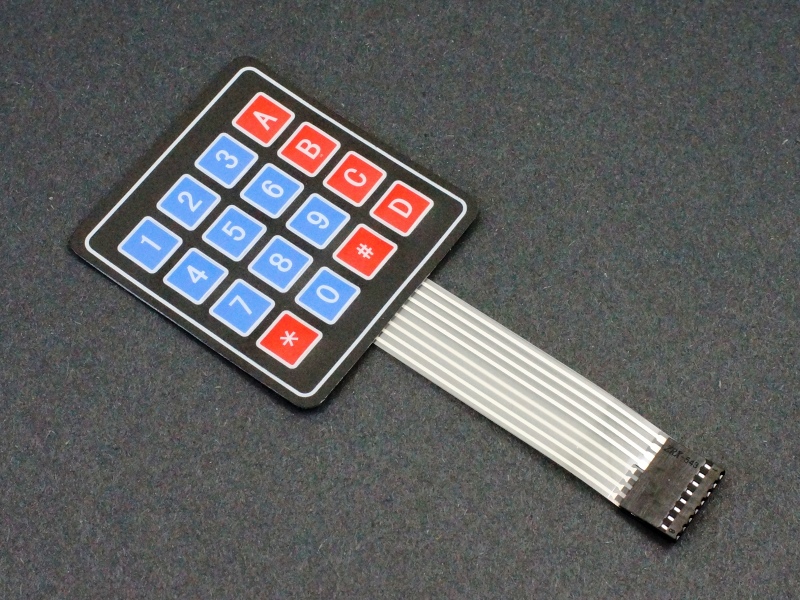Comprehending the Importance of Membrane Switches in Interface
Membrane buttons are indispensable elements in the design of reliable customer interfaces, facilitating not just functionality yet likewise enhancing visual appeal and user interaction. Their unique functions, such as resistance to environmental factors and adjustable layouts, make them appropriate for a diverse selection of applications throughout numerous industries. As we explore the different benefits and future fads connected with Membrane technology, it becomes clear that these buttons are much more than simply parts; they stand for a convergence of innovation and usefulness. The implications of this innovation on customer experience deserve analyzing better.
What Are Membrane Buttons?

The spacer layer, which has sticky buildings, permits for the splitting up of the circuit layer from the overlay, ensuring that the switch stays in a non-activated state up until pushed. When pressure is applied to the overlay, it compresses the spacer layer, connecting the void and finishing the circuit in the underlying layer. This design not only decreases the physical room required for standard mechanical switches however additionally boosts the durability of the tool, as Membrane buttons are generally immune to dust, wetness, and various other environmental variables.
Commonly discovered in applications ranging from consumer electronics to medical tools, Membrane buttons are important to modern-day technology, offering a easy to use and effective interface that straightens with contemporary design demands.
Benefits of Membrane Switches
While numerous button innovations exist, Membrane Switches offer unique benefits that make them specifically preferable in numerous applications. One of the main advantages of Membrane switches is their portable style, which permits space-saving applications in devices where realty is restricted. Their thin account not only enhances aesthetic charm yet also helps with light-weight building.
Another substantial benefit is their resistance to environmental variables. Membrane buttons are typically secured versus dampness, dirt, and contaminants, making them suitable for use sought after atmospheres, such as clinical gadgets and commercial tools. This sturdiness prolongs the lifespan of the switch, minimizing upkeep costs and boosting dependability.
Furthermore, Membrane switches can be tailored to satisfy specific design requirements, incorporating one-of-a-kind graphics and colors that enhance customer interaction. Their tactile comments options can also be tailored to provide a satisfying customer experience. Furthermore, Membrane buttons are economical, especially in high-volume applications, as they can be generated effectively.
Applications in Numerous Industries

In the customer electronic devices market, Membrane switches are prevalent in tools such as microwaves, cleaning devices, and push-button controls. Their tactile feedback and aesthetic alternatives improve user experience while supplying a sleek, modern appearance. Furthermore, automotive makers utilize Membrane switches in dashboard controls and infomercial systems, where area is restricted, and user involvement is vital.
In addition, the industrial market leverages Membrane switches in control panels for machinery and tools, enabling for instinctive operation in commonly harsh atmospheres. Their resistance to chemicals and dampness makes sure long life and dependability in these applications. In general, the versatility of Membrane Switches adds significantly to their prevalent use, making them essential in different technical domain names.
Design Considerations for Membrane Buttons

When creating Membrane buttons, numerous key factors to consider have to be taken into consideration to guarantee ideal performance and customer experience. The choice of products is critical; selecting durable, top quality substratums can boost the button's long life and resistance to ecological aspects such as wetness and temperature fluctuations.
Secondly, the layout of the visuals overlay must focus on clearness and ease of use. Icons and text have to be understandable, and the format must help with intuitive communication (membrane switches). In addition, responsive feedback is important; including a responsive dome or various other systems can improve the user experience by giving physical verification of activation
Another important aspect is the switch's electric efficiency. Designers have to make sure that the conductive traces are properly made to lessen resistance and avoid signal disturbance. This involves analyzing the needed actuation force and guaranteeing compatibility with the electronic parts they will user interface with.

Future Patterns in Membrane Innovation
As modern technology continues to breakthrough, Membrane buttons are positioned to develop dramatically, driven by he said developments in products and manufacturing methods. One arising trend is the consolidation of sophisticated products, such as conductive inks and flexible substratums, which boost resilience and minimize the total weight of Membrane switches. These products not just boost the tactile reaction yet likewise allow for the layout of switches that can withstand harsher ecological problems.
Additionally, the integration of touch-sensitive innovations is changing typical Membrane Switches into more interactive individual interfaces. Capacitive touch sensing units installed within Membrane button panels can give a more user-friendly and responsive individual experience, straightening with the expanding need for streamlined, contemporary styles in consumer electronics.
Furthermore, improvements in printing strategies, such as electronic and 3D printing, make it possible for quick prototyping and modification of Membrane buttons. This versatility enables makers to react a lot more swiftly to market needs and customer choices.
Finally, sustainability is ending up being a considerable focus, with producers exploring environmentally friendly materials and procedures. As these fads best site unravel, the future of Membrane technology promises boosted functionality, visual allure, and ecological obligation, solidifying their duty in innovative interface across numerous sectors.
Final Thought
In conclusion, Membrane Switches represent an essential component in the layout of user interfaces, incorporating functionality with aesthetic adaptability. As developments in modern technology continue, the development of Membrane switches is expected to more refine individual interfaces, driving technology and boosting usability in a significantly complicated technical landscape.
Membrane switches are essential parts in the design of effective individual interfaces, promoting not only functionality however additionally boosting aesthetic allure and user interaction.Membrane Switches serve as a crucial part in various user interfaces, helping with a smooth communication in between customers and digital devices.While various switch technologies exist, Membrane Switches offer distinctive benefits that make them specifically desirable in various applications.Furthermore, Membrane switches can be customized to meet particular style demands, integrating special graphics and shades that boost customer communication.In verdict, Membrane Switches stand for a crucial element in the style of user interfaces, combining functionality with aesthetic flexibility.